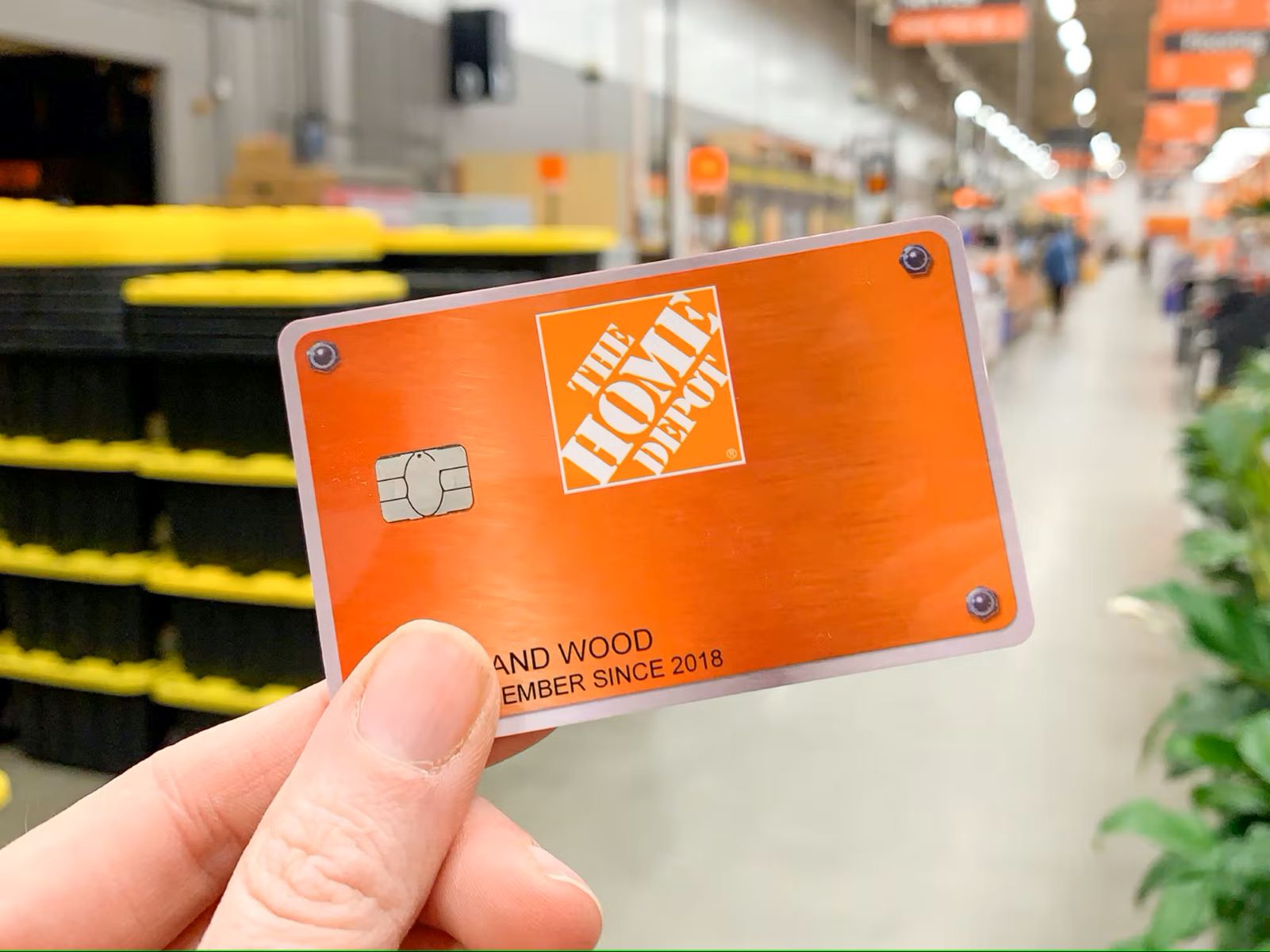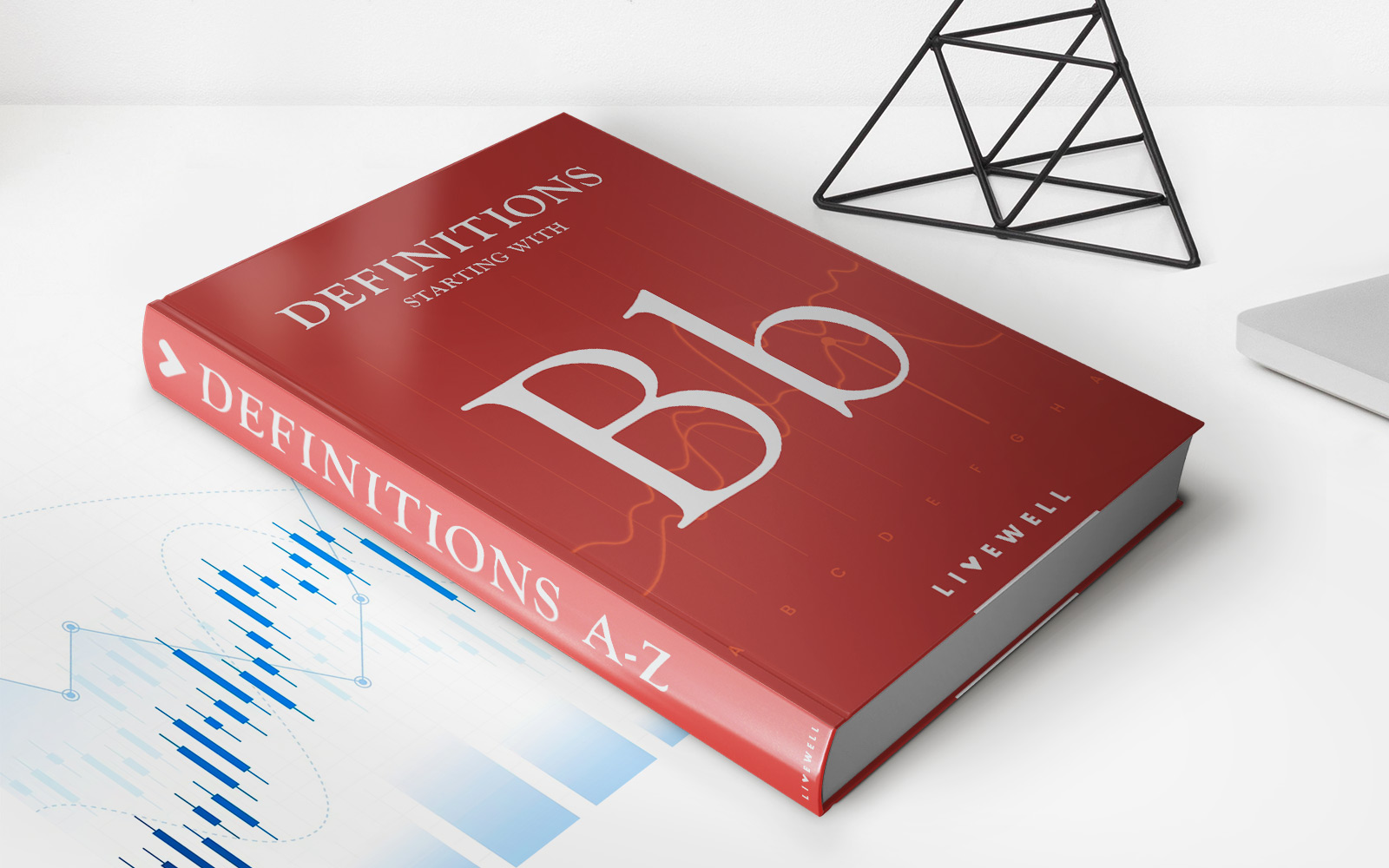

Finance
How To Get My Credit Card Debt Forgiven
Modified: December 29, 2023
Looking to get your credit card debt forgiven? Get expert tips and advice on managing your finances and finding potential debt forgiveness options.
(Many of the links in this article redirect to a specific reviewed product. Your purchase of these products through affiliate links helps to generate commission for LiveWell, at no extra cost. Learn more)
Table of Contents
- Introduction
- Understanding Credit Card Debt Forgiveness
- Evaluating Different Options for Credit Card Debt Forgiveness
- Exploring Debt Settlement Programs
- Negotiating with Credit Card Companies
- Seeking Assistance from Credit Counseling Agencies
- Utilizing Debt Consolidation Strategies
- Applying for Balance Transfer Credit Cards
- Exploring the Option of Bankruptcy
- Considering Credit Card Debt Forgiveness Scams
- Conclusion
Introduction
Credit card debt can be a heavy burden, causing financial stress and making it difficult to achieve your financial goals. If you find yourself overwhelmed by credit card debt, you may wonder if there are any options available to help you get out from under this financial weight. One such solution is credit card debt forgiveness.
Credit card debt forgiveness involves negotiating with your credit card company to have a portion of your outstanding debt forgiven or reduced. While it may sound like a dream come true, it is important to understand the process, the potential risks, and the alternatives before pursuing credit card debt forgiveness.
Throughout this article, we will delve into the concept of credit card debt forgiveness and explore various options that can help you in this regard. From debt settlement programs to negotiating with credit card companies, seeking assistance from credit counseling agencies, and utilizing debt consolidation strategies, we will cover a variety of avenues that you can explore to find the best solution for your unique financial situation.
It is essential, however, to exercise caution and be aware of potential credit card debt forgiveness scams. There are unscrupulous individuals and agencies that may promise unrealistic results and take advantage of your desperate financial situation. Understanding the signs of a scam and knowing how to protect yourself can save you from further financial hardship.
Ultimately, credit card debt forgiveness can be a viable option for those who are struggling with overwhelming debt. By exploring the various options available and understanding the potential risks and alternatives, you can make an informed decision and take steps towards achieving financial freedom.
Understanding Credit Card Debt Forgiveness
Credit card debt forgiveness is a process that allows individuals to have a portion of their outstanding credit card debt forgiven or reduced. This can provide much-needed relief for those who are struggling to make minimum payments or facing financial hardship. However, it is important to understand the terms and conditions associated with credit card debt forgiveness before pursuing this option.
When a credit card company forgives or reduces a portion of your debt, it typically involves negotiating with the creditor to reach an agreement. This agreement may result in the waiver of a specific amount or percentage of your outstanding balance. The forgiven debt is usually considered taxable income by the IRS, so it is crucial to consider the potential tax implications before proceeding.
It is important to note that credit card debt forgiveness is not guaranteed. Credit card companies are under no obligation to forgive your debt, and they may only consider this option if they believe it is in their best interest. Therefore, it is essential to present a compelling case and demonstrate a genuine financial hardship to increase the likelihood of a successful negotiation.
It is also important to understand the potential repercussions of credit card debt forgiveness. While it can provide temporary relief, it may have long-term consequences on your credit score. Debt forgiveness can be reported to credit bureaus and reflected on your credit report, which can impact your ability to secure future credit or loans. It is advisable to weigh the pros and cons and consider alternative options before pursuing credit card debt forgiveness.
By having a clear understanding of credit card debt forgiveness and its implications, you can make an informed decision about whether it is the right solution for your financial situation. In the following sections, we will explore various options to consider when seeking credit card debt forgiveness, allowing you to choose the path that best aligns with your goals and circumstances.
Evaluating Different Options for Credit Card Debt Forgiveness
When it comes to credit card debt forgiveness, there are several options to consider. Each option has its own advantages, disadvantages, and eligibility criteria. By carefully evaluating these different options, you can determine the best course of action for your specific financial situation.
One popular option for credit card debt forgiveness is debt settlement. Debt settlement involves negotiating with your creditors to reach a reduced settlement amount. This typically requires you to demonstrate financial hardship and offer a lump sum payment to settle the debt. While debt settlement can provide significant debt reduction, it may have a negative impact on your credit score and require a considerable amount of upfront money.
Another option to explore is negotiating directly with your credit card companies. This involves contacting your creditors and explaining your financial situation, requesting a reduction in interest rates, late fees, or a payment plan that is more manageable for you. While not all creditors may be willing to negotiate, it is worth a try to see if you can reach a mutually beneficial agreement.
Credit counseling agencies can also provide assistance in navigating credit card debt forgiveness. These organizations work with you to create a realistic budget and negotiate with your creditors on your behalf. They can help you consolidate your debts into a single monthly payment and potentially reduce interest rates. It is important to research and choose a reputable credit counseling agency to ensure you receive quality assistance.
Debt consolidation is another option to consider. This involves combining multiple debts into a single loan or credit card with a lower interest rate. Debt consolidation simplifies your repayment process and can potentially save you money on interest charges. However, it is important to carefully review the terms and fees associated with the consolidation loan and ensure it is a financially viable option for you.
A balance transfer credit card is another potential solution for credit card debt forgiveness. This involves transferring your existing credit card balances to a new card with a lower interest rate or an introductory 0% APR period. This can provide temporary relief from high interest charges and allow you to focus on paying down your debt more efficiently. However, it is important to be mindful of balance transfer fees and the terms and conditions associated with the new credit card.
Lastly, for individuals facing extreme financial hardship and with no viable options for credit card debt forgiveness, bankruptcy may be considered as a last resort. Filing for bankruptcy can provide a fresh start by eliminating or restructuring your debts. However, this should be approached with caution, as bankruptcy has serious long-term consequences on your creditworthiness and financial reputation.
Ultimately, evaluating the different options for credit card debt forgiveness allows you to choose the path that aligns with your financial goals and capabilities. It is advisable to seek professional guidance and carefully consider each option’s pros and cons before making a decision that can significantly impact your financial future.
Exploring Debt Settlement Programs
Debt settlement programs can be a viable option for individuals seeking credit card debt forgiveness. These programs involve working with a debt settlement company or negotiating directly with your creditors to reach a reduced settlement amount.
The goal of debt settlement is to negotiate with your creditors to settle your debt for less than the full amount owed. This typically requires you to demonstrate financial hardship and offer a lump sum payment or a series of installments to satisfy the negotiated amount. It is important to note that debt settlement does not guarantee forgiveness of the entire debt, but rather a portion of it.
When considering a debt settlement program, it is crucial to do thorough research and choose a reputable and experienced debt settlement company. Look for accredited organizations and check their track record with consumer protection agencies and the Better Business Bureau.
Working with a debt settlement company can provide several benefits. These companies have established relationships with creditors and are knowledgeable about the negotiation process. They can advocate on your behalf, handle correspondence with your creditors, and increase the chances of reaching a favorable settlement.
However, debt settlement programs also come with potential drawbacks. It is important to be aware of the risks involved, such as the impact on your credit score. Debt settlement can have a negative effect on your credit rating, as it involves intentionally not paying your debts in full. Additionally, debt settlement companies typically charge fees for their services, and these fees can vary widely. It is crucial to understand the fees associated with the program and ensure they are reasonable and transparent.
Before enrolling in a debt settlement program, it is advisable to assess your financial situation and determine if it is the right option for you. Consider factors such as the total amount of debt you owe, your income, and your ability to make lump sum payments or set aside funds for a negotiated settlement. It may also be helpful to consult with a financial advisor or credit counselor to get a better understanding of the potential impact on your overall financial well-being.
If you decide to move forward with a debt settlement program, it is crucial to carefully review and understand the terms and conditions of the agreement. Ensure that all the details are outlined clearly, including the percentage of debt to be forgiven, the payment schedule, and any fees associated with the settlement process. Keep in mind that debt settlement can take time, often months or even years, depending on your individual circumstances.
Overall, exploring debt settlement programs can be a viable option for credit card debt forgiveness, but it is essential to approach them with caution and conduct thorough research before making a decision. By understanding the process, the potential risks, and the terms of the program, you can make an informed choice that aligns with your financial goals and aspirations.
Negotiating with Credit Card Companies
If you’re dealing with credit card debt and seeking debt forgiveness, one option to consider is negotiating directly with your credit card companies. By reaching out to them and explaining your financial situation, you may be able to negotiate more favorable terms, such as reduced interest rates, waived fees, or even a payment plan that better suits your financial capabilities.
When negotiating with credit card companies, it is important to be prepared and have a clear understanding of your financial situation. Take the time to evaluate your income, expenses, and overall debt burden. Having this information at hand will enable you to present a well-informed case for why you need assistance or forgiveness.
Start the negotiation process by contacting the customer service department of your credit card company. Explain your financial hardship and the specific challenges you are facing in meeting your debt obligations. It is important to remain calm and polite throughout the conversation, as a cooperative and respectful attitude can often positively influence the outcome.
During the negotiation, you should be prepared to discuss potential solutions that would benefit both parties. For example, you could propose a reduced interest rate or request the removal of late payment fees. Offering to establish a payment plan that is reasonable and within your means can also demonstrate your commitment to resolving the debt.
It is worth noting that not all credit card companies may be willing to negotiate. Some may have strict policies in place, while others may be more open to working with consumers in financial distress. However, it doesn’t hurt to make the effort and see if a compromise can be reached.
If you are successful in negotiating with your credit card company, make sure to get any new agreement in writing. This will serve as a legal document and provide you with proof of the agreed-upon terms. Review the document carefully to ensure that everything aligns with the terms discussed during the negotiation.
It’s important to remember that negotiating with credit card companies does not guarantee debt forgiveness. However, it can provide temporary relief by reducing interest rates and fees. Additionally, it may improve your ability to manage your debt and make progress towards paying it off.
If you find that negotiations with your credit card company are not yielding the desired results, it may be beneficial to seek assistance from a credit counseling agency. These organizations can provide guidance and expertise in handling negotiations with creditors and developing a plan to manage your debt.
Overall, negotiating with credit card companies can be a valuable strategy for debt forgiveness. By proactively reaching out and presenting your case, you may be able to secure more favorable terms and alleviate some of the financial burden associated with your credit card debt.
Seeking Assistance from Credit Counseling Agencies
When facing overwhelming credit card debt and seeking debt forgiveness, one option to consider is seeking assistance from credit counseling agencies. These organizations specialize in helping individuals manage their debt and provide guidance to navigate through challenging financial situations.
Credit counseling agencies offer a range of services, including financial education, budgeting assistance, and debt management plans. These services can help you gain a better understanding of your finances and develop a strategy to pay off your debt.
One of the main benefits of working with a credit counseling agency is their ability to negotiate with your creditors on your behalf. They have established relationships with credit card companies and can advocate for lower interest rates, waived fees, or extended payment terms. This can result in more manageable monthly payments and potentially reduce the total amount of debt you owe.
When choosing a credit counseling agency, it is crucial to do your research and select a reputable organization. Look for agencies that are accredited by recognized bodies, such as the National Foundation for Credit Counseling (NFCC) or the Financial Counseling Association of America (FCAA). These accreditations ensure that the agency meets certain standards of professionalism and ethical conduct.
During your initial consultation with a credit counseling agency, they will assess your financial situation, review your debts, and help you create a personalized plan. They will work with you to develop a budget that aligns with your income and expenses, and they may recommend enrolling in a debt management plan (DMP).
A DMP is a program offered by credit counseling agencies that combines your unsecured debts, such as credit cards, into a single monthly payment. The agency will then distribute the funds to your creditors on your behalf. DMPs often come with benefits such as reduced interest rates and the elimination of late fees.
It is important to note that enrolling in a DMP may have an impact on your credit score. However, as you make consistent payments and demonstrate financial responsibility, your credit score may improve over time.
Working with a credit counseling agency can provide you with the support and expertise needed to navigate through the process of debt forgiveness. They can assist you in developing a realistic repayment plan, negotiating with your creditors, and providing ongoing financial education to help you avoid future debt problems.
Overall, seeking assistance from credit counseling agencies can be a valuable option for individuals seeking credit card debt forgiveness. Their expertise and guidance can help you regain control over your finances and make progress towards becoming debt-free.
Utilizing Debt Consolidation Strategies
Debt consolidation is a strategy that allows individuals to combine multiple debts into a single loan or credit card. This can be a viable option for those seeking credit card debt forgiveness, as it simplifies the repayment process and may offer more favorable terms and interest rates.
There are several ways to utilize debt consolidation strategies. One common method is to obtain a consolidation loan from a financial institution. This loan is used to pay off your existing credit card debts, leaving you with a single monthly payment to the loan provider. Consolidation loans often come with lower interest rates, which can save you money on interest charges over time.
Another option is to transfer your credit card balances to a single balance transfer credit card with a lower interest rate or an introductory 0% APR period. This allows you to consolidate your debts and potentially pay them off more quickly without accruing additional interest charges. However, it is important to be mindful of any balance transfer fees and ensure that you can pay off the debt within the promotional period.
Before deciding on a debt consolidation strategy, it is important to do your homework and evaluate the terms, fees, and benefits associated with each option. Consider factors such as the interest rate, repayment period, and any potential impact on your credit score. It can be helpful to consult with a financial advisor to determine the best consolidation strategy for your specific financial situation.
Utilizing debt consolidation strategies offers several advantages. First and foremost, it simplifies your debt repayment process by consolidating multiple debts into a single monthly payment. This can help you stay organized and potentially reduce the risk of missing payments. Additionally, debt consolidation often comes with lower interest rates, which can save you money in the long run.
However, it is important to be cautious and aware of potential pitfalls. Debt consolidation does not eliminate your debts but rather transfers them to a new loan or credit card. It is still crucial to make consistent payments and manage your finances responsibly to avoid accruing additional debt.
Moreover, debt consolidation may not be suitable for everyone. If you do not qualify for a consolidation loan or if the interest rates offered are higher than your current rates, it may not be the right option for you. In such cases, it may be worth exploring alternative solutions for credit card debt forgiveness.
Overall, utilizing debt consolidation strategies can be an effective way to streamline your debt repayment and potentially save money on interest charges. By carefully considering the terms and benefits of each consolidation option, you can make an informed decision that aligns with your financial goals and helps you achieve credit card debt forgiveness.
Applying for Balance Transfer Credit Cards
Applying for a balance transfer credit card can be an effective strategy for individuals seeking credit card debt forgiveness. These cards allow you to transfer your existing credit card balances to a new card with a lower interest rate or an introductory 0% APR period, providing you with an opportunity to consolidate your debts and save on interest charges.
When applying for a balance transfer credit card, it is important to consider several factors. Start by researching and comparing different cards to find the one that best suits your needs. Look for cards that offer attractive balance transfer terms, such as a longer introductory period with a 0% APR or a low-interest rate for the duration of the transfer.
Before applying for a balance transfer credit card, assess your current credit score. Many balance transfer cards require a good to excellent credit score for approval. If your credit score is less than ideal, it may be challenging to qualify for certain cards. However, there are cards available specifically for individuals with lower credit scores or limited credit history.
When filling out the application, provide accurate and up-to-date information. This includes details about your income, employment status, and existing debts. Be mindful that applying for multiple credit cards within a short period can have a negative impact on your credit score, so it’s advisable to only apply for the card that best fits your needs.
Once approved for a balance transfer credit card, carefully review the terms and conditions. Take note of any balance transfer fees, annual fees, or other charges associated with the card. Additionally, pay close attention to the introductory period and any restrictions or limitations on the balance transfer, such as a maximum limit or specific timeline to complete the transfer.
When transferring your balances to the new credit card, ensure that you follow the specific instructions provided by the card issuer. Typically, you will need to provide the account numbers and amounts of the balances you wish to transfer. It is important to complete the transfer within the designated timeframe to take advantage of the promotional rates or low-interest periods.
Utilizing a balance transfer credit card can offer several benefits. First and foremost, it allows you to consolidate multiple credit card debts into a single payment, simplifying your financial management. Additionally, the lower interest rates or 0% APR introductory periods can save you money on interest charges, potentially helping you pay off your debt more efficiently.
However, it’s important to be aware of potential drawbacks. Balance transfer credit cards may come with balance transfer fees, annual fees, or higher interest rates after the introductory period. It is crucial to understand these costs and assess whether the potential savings outweigh the associated fees.
Overall, applying for a balance transfer credit card can be a valuable strategy for credit card debt forgiveness. By taking advantage of lower interest rates or 0% APR promotions, you can consolidate your debts and save money in the process. Carefully research and compare different cards, consider your credit score, and review the terms and conditions before making a decision. With proper planning and responsible payment management, a balance transfer credit card can help you achieve your goal of becoming debt-free.
Exploring the Option of Bankruptcy
When facing insurmountable credit card debt and seeking debt forgiveness, one option to consider is filing for bankruptcy. Bankruptcy is a legal process that allows individuals to eliminate or restructure their debts and obtain a fresh financial start. While it should be considered as a last resort due to its long-term consequences, it can provide relief for those who are unable to manage their debt burden.
There are two common types of consumer bankruptcy: Chapter 7 and Chapter 13.
In Chapter 7 bankruptcy, also known as liquidation bankruptcy, a trustee is appointed to sell the debtor’s nonexempt assets and distribute the proceeds to creditors. Most unsecured debts, including credit card debt, can be discharged, meaning they are wiped out, providing a clean slate. However, it is essential to note that certain debts, such as student loans or child support, may not be dischargeable.
Chapter 13 bankruptcy, on the other hand, involves creating a repayment plan to pay off all or a portion of the debts over a period of three to five years. This option may be suitable for individuals who have a regular income and wish to retain their assets while repaying their debts. Under this plan, credit card debt can be included, and creditors may receive only a percentage of what is owed.
It is important to understand that filing for bankruptcy has significant long-term consequences. Bankruptcy stays on your credit report for several years and can impact your ability to obtain credit, secure loans, or even find employment in certain industries. It is crucial to weigh the potential benefits against the long-term impact on your financial well-being.
Prior to filing for bankruptcy, it is advisable to consult with a bankruptcy attorney who can guide you through the process, explain the different options available, and help you understand the implications. They will assess your financial situation, determine your eligibility, and ensure that you meet all the necessary requirements for filing.
Bankruptcy should only be considered after exploring alternative options for debt forgiveness, such as debt settlement or credit counseling. It is essential to exhaust all other means of managing debt before deciding to proceed with bankruptcy.
Additionally, keep in mind that not all debts may be dischargeable through bankruptcy. Certain obligations, such as taxes, student loans, and child support payments, are typically not eligible for discharge and will still need to be repaid.
In summary, exploring the option of bankruptcy should only be considered as a last resort when all other avenues for debt forgiveness have been exhausted. It is a complex legal process with long-term consequences, so it is crucial to seek professional advice and thoroughly understand the implications before proceeding. By carefully evaluating your financial situation and considering all available options, you can make an informed decision that aligns with your long-term financial goals and aspirations.
Considering Credit Card Debt Forgiveness Scams
While there are legitimate options available for credit card debt forgiveness, it is important to be vigilant and cautious of credit card debt forgiveness scams. Scammers often prey on individuals who are in vulnerable financial situations, offering false promises of quick and easy debt relief. These scams can result in further financial harm and leave victims in an even more precarious situation.
One common type of credit card debt forgiveness scam is the upfront fee scam. Scammers may claim that they can negotiate with your creditors on your behalf and have a high success rate in reducing or eliminating your debt. However, they require an upfront fee to begin the process. Once the fee is paid, they either disappear without providing any services or provide ineffective assistance that does not lead to any debt relief.
Another type of scam is the identity theft scam. In this scheme, scammers may pose as debt relief agencies or credit counselors and request sensitive personal and financial information from victims. They use this information to commit identity theft and gain access to victims’ accounts or engage in fraudulent activities.
It is crucial to be aware of the warning signs of credit card debt forgiveness scams. These may include:
- Unsolicited offers: Be cautious of unsolicited offers that claim to provide debt relief without you seeking help or making any inquiries.
- Guaranteed results: Scammers often make unrealistic promises, guaranteeing to eliminate all your debt or provide immediate relief. Legitimate debt relief programs cannot guarantee specific outcomes.
- Pressure tactics: Scammers may use high-pressure tactics to push you into making hasty decisions or paying upfront fees.
- Requests for personal information: Be cautious of requests for personal and financial information, especially if they are unsolicited or from unfamiliar sources.
- Lack of transparency: Scammers may be evasive or unwilling to provide clear information about their services, fees, or credentials.
To protect yourself from credit card debt forgiveness scams, it is important to take proactive measures:
- Research and verify: Before engaging with any debt relief agency or credit counselor, thoroughly research their credentials, reputation, and client reviews. Check for accreditations from reputable organizations such as the National Foundation for Credit Counseling (NFCC) or the Financial Counseling Association of America (FCAA).
- Read contracts carefully: If you decide to work with a debt relief agency, carefully review all documents and contracts. Ensure that the terms are clearly stated, including any fees, the services provided, and the expected outcomes.
- Protect your personal information: Never provide personal or financial information to unsolicited callers or online sources. Only share sensitive information with trusted and verified entities.
- Trust your instincts: If something seems too good to be true or feels off, trust your instincts and proceed with caution. If it feels like a scam, it probably is.
If you believe you have fallen victim to a credit card debt forgiveness scam, it is important to act swiftly. Contact your local authorities, file a complaint with the Federal Trade Commission (FTC), and consider seeking legal advice to explore possible recourse.
By staying informed, vigilant, and skeptical, you can protect yourself from credit card debt forgiveness scams and make informed decisions about pursuing legitimate avenues for debt relief.
Conclusion
Credit card debt can be a significant burden, but there are options available for debt forgiveness. Understanding and exploring these options can help you regain control over your finances and pave the way to a debt-free future.
When considering credit card debt forgiveness, it is important to evaluate the various options available. Debt settlement programs can provide debt reduction but come with potential risks. Negotiating directly with your credit card companies can lead to more favorable terms and interest rates. Seeking assistance from credit counseling agencies offers guidance and negotiation support. Utilizing debt consolidation strategies can simplify your repayment process. Applying for balance transfer credit cards allows you to consolidate debts and save on interest charges. Exploring bankruptcy is a last resort option and should be approached with caution due to its long-term implications.
While pursuing credit card debt forgiveness, it is crucial to be aware of credit card debt forgiveness scams. These scams prey on vulnerable individuals, promising quick and easy solutions but delivering no real help. Stay vigilant, research and verify debt relief agencies, and protect your personal information to avoid falling victim to these scams.
In conclusion, finding the right solution for credit card debt forgiveness requires careful consideration of your financial situation, goals, and risks involved. Seeking professional advice, developing a realistic plan, and being proactive in managing your debts are essential steps towards achieving financial freedom.
Remember, there is no one-size-fits-all approach to credit card debt forgiveness. Each individual’s circumstances are unique, and what works for one person may not be suitable for another. Take the time to assess your options, consult with experts, and make an informed decision that aligns with your financial goals and aspirations.
With determination, discipline, and a strategic approach, you can overcome credit card debt and embark on a path towards a brighter financial future.














